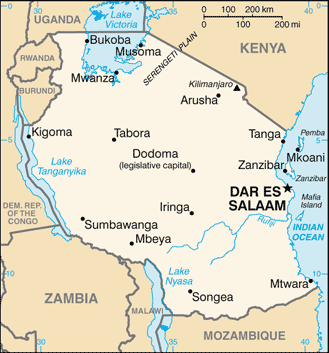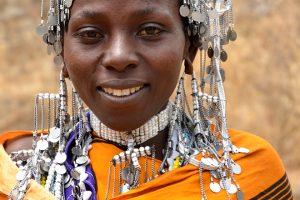Since Tanganyika's independence in 1961 and the creation of the United Republic of Tanzania with the Zanzibar archipelago in 1964, the country has traditionally benefited from significant political and social stability, despite its great ethnic and religious diversity. Since 1992, following a constitutional amendment, multiparty democracy has been re-established with a gradual opening of democratic spaces, although the political system continues to revolve around the former single party, the CCM (Chama Cha Mapinduzi).
Thanks to two decades of sustained growth, Tanzania reached lower-middle-income status in July 2020, thus surpassing its low-income status.
The country has an estimated population of 61 million people but the lowest population density in the region, while almost one-third of the population resides in urban areas. The population is predominantly young, with about two-thirds being under the age of 25, and is growing rapidly, moving from rural areas to cities.
Tanzania's continued progress in expanding economic opportunities for women has contributed to its recent success in growth and poverty reduction. The female labour force participation rate rose from 67% in 2000 to 80% in 2019, well above the sub-Saharan Africa average of 63% and among the highest on the continent. Between 2007 and 2021, the poverty rate fell from 34.4% to around 27%.
In 2023, Tanzania continued to show signs of economic growth and social development. The World Bank forecasts a GDP growth of 5% for the year, supported by investments in infrastructure and a relatively stable macroeconomic environment.
On the political front, the country has seen greater civil society participation and increased pressures for democratic reforms. The 2023 local elections recorded significant turnout and were seen as a positive step towards greater political inclusiveness and transparency.
Tanzania remains an example of political and social stability in the region, with continued economic growth and significant progress in female participation and poverty reduction. However, the country still faces significant challenges, including the need to improve access to education and healthcare, as well as addressing developmental disparities, to ensure equitable and sustainable development for the entire population.
The Italian contribution
In Tanzania, the historic presence of Italian Cooperation has been an important component for the country's development. Over the years, the areas of intervention of Italian Cooperation have included crucial sectors such as healthcare, rural development, food security, basic services, with particular attention to gender issues. In recent years, AICS has played an increasing role in the field of Technical and Vocational Education and Training (TVET), in a view of curbing youth unemployment and promoting entrepreneurship and social inclusion; and in statistics.
There is an incredible variety of Civil Society Organizations (CSOs) in the country, widely spread across almost the entire national territory, representing a flagship of the "Italian system". Through AICS funding, Italian CSOs have activated interventions in sectors ranging from agricultural development to the promotion of human rights, from protecting children with disabilities to combating HIV, AIDS, and tuberculosis.


